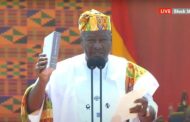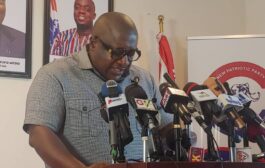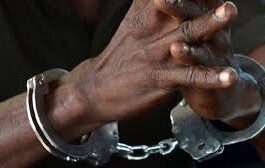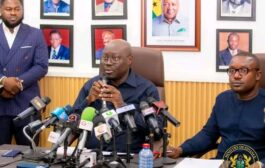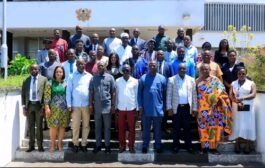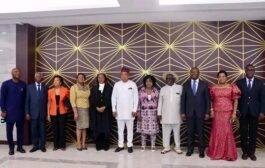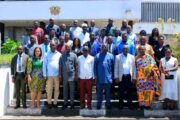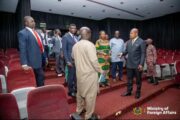The GFA Ethics Committee has dismissed the case against Mr Ibrahim Sannie Daara, who was facing charges of bribery and corruption in relation to the Tiger Eye Investigative Documentary (Number 12).
“The Ethics Committee concluded that there was insufficient evidence to support the allegation of acts of bribery and corruption on the part of Mr Ibrahim Sannie Daara”, the GFA Ethics Committee stated in its decision signed by Chairperson, Ms Phyllis M. Christian, Esq.
Mr Daara was alleged to have been offered and accepted money from agents of Tiger Eye PI, contrary to Article 20.1(b) of the GFA Code of Ethics following the airing of the Number 12 Documentary, which purported to expose corruption in football in Ghana.
The Investigatory Chamber of the GFA Ethics Committee, Chaired by Dr Isaac Annan Esq. opened a preliminary investigation into the allegations of ethical breaches.
The Investigatory Chamber took steps within its power to obtain the necessary evidence to support or refute the charges preferred against Ibrahim Sannie Daara to the fullest extent possible.
This was done by calling the necessary witnesses as far as they were available and by seeking the facts as far as the records could show.
The Ethics Committee requested that Mr Joshua Acquah, being a key witness, be invited to assist with investigations. However, the Committee was informed by the FA, that Joshua Acquah was not traceable since the airing of the Number 12 documentary. All efforts to find or reach Joshua Acquah were unsuccessful. The Ethics Committee found that from the video evidence and transcript Mr Daara had indeed met with two persons, ostensibly Acquah and an individual referring to himself as ‘Alhassan’ (Manager of Thomas Abbey).
The two requested that Mr Daara could assist Thomas Abbey with a call-up into the then CHAN Team. In his utterances, Mr Daara was heard advising the persons present to ensure that Thomas Abbey stays professional and that any player who does well a coach would call him.
He told the two people to encourage the player “to give all his best”.
Beyond the possibility that he was merely being polite, the Investigatory Chamber found no compelling evidence to ascribe any motive to Mr Daara’s assurances other than the intentions he had expressed in his testimony.
Following this, the video evidence showed that there was no attempt by Sannie Daara to collect the offered envelope. In both edited and unedited videos, Mr Daara was clearly seen to make a hands-off gesture and had declined to take the envelope as offered.
While the voice-over in the edited Documentary indicated that Mr Daara had directed that the money be given to an acquaintance of his, the EC found no evidence to support this claim. There was no evidence of the person who purportedly collected the monies on behalf of Mr Daara as proffered in the Documentary or provided to the Investigatory Chamber to tip the scales in favour of the accusation. In the opinion of the Ethics Committee, to go by the voice-over alone would have been to speculate on hypotheticals.
Therefore, the Committee assessed the evidence presented in the two videos, alongside the transcript, by viewing, listening and discerning the points of variation to discount or validate the assertion made by the voice-over.
Further, it endeavoured to obtain critical testamentary information from the witnesses, as well as from the GFA and took steps to assess, analyze and consider this information against the charges preferred against Mr Daara.
Taking all the above into account, the Ethics Committee concluded that there was insufficient evidence to support the allegation of acts of bribery and corruption on the part of Mr Ibrahim Sannie Daara.
Members of the Adjudicatory Chamber of the Ethics Committee are Ms Phyllis M. Christian (Esq.), Dr. Charles Takyi and Mrs Linda Ofori-Kwafo.
Dr Isaac Annan (Esq.) and Mr Wilfred Neneh Addico are members of the Investigatory Chamber.
The full decision has been communicated to Mr Ibrahim Sannie Daara.
GFA COMMUNICATIONS











